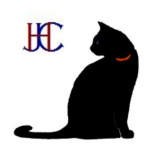Jeff, my post was a little misleading. Actually what I'm missing is stage 3/4 which most authorities have combined now into one. I take stage 1 as a given, it's that time when you're just falling asleep on your way to truly being asleep (stage 2), but still may be somewhat conscious. I take stage 2 as restful, but not restorative. I think restorative sleep requires two things; REM and Stage 3/4. REM seems to be psychologically restorative and stage 3/4 seems to be physically restorative. These are my interpretations but I think they fit the science well enough. Most people go through regular cycles of sleep stages lasting approximately 90 to 120 minutes each. The cycle consisting of stage 1,2,3/4, REM in that order. A "normal" sleep architecture would consist of 3 or 4 of these cycles per night, with the most deep (delta) (slow wave) (stage 3/4) sleep occurring in the first cycle. I think if you miss stage 3/4, you'll awake feeling tired, groggy, with subsequent fatigue if it continues. Typical times in each stage varies with age with stage 3/4 decreasing as we get older. REM time stays relatively constant with age. Typical times for a 20 year old might be about 90 minutes REM and 80 minutes Stage 3/4. For a 70 year old we might see 70 minutes REM and 30 minutes Stage 3/4. I get around an hour of REM and 5-7 minutes of stage 3/4 each night.
Now, the problem with sedatives, possibly including benadryl and for sure alcohol, is that many put you to sleep (stage 2) but do not promote and may actually inhibit stage 3/4. Therefore, when you take them you sleep, but wake feeling unrefreshed. There are only a handful of sedatives I've found which reportedly do not inhibit stage 3/4 sleep: Ambien, Lunesta, an older one I think you've taken-trapadazone (I know the spelling's probably not right but you know the one), and a couple others whose side effects scare me. You can google restorative sleep sedatives and start to find some. Interestingly, some of the most commonly prescribed drugs like klonopin actually inhibit deep sleep (according to my research).
As for your dreams, most people seem to think we only dream in REM. However, I believe that this hypothesis is being challenged more and more lately. Usually, when I wake shortly after falling asleep and have been dreaming, it's when I've been feeling fatigued going to bed. Don't know what that means. It does seem that REM is the stealer of Deep Sleep. Many people seem to go too soon into REM and awake from REM at the expense of stage 2, and 3/4. Some drugs seem to cause this.
I think what might be good for you is to try to stay compliant, get your AHI stable at low level for some time, and if you're still not feeling refreshed, see your doctor for another PSG to see what's going on so that you might choose an appropriate treatment. In the meantime, keeping a log as suggested might help you uncover contributing factors. Of course, good sleep hygiene goes without saying and, if your 25mg benadryl is leaving you with a "hangover", I'd look for the tablet form and spit them to 12.5 or so.
Jay
Help Analyze My ResScan Flow Data For Wake Ups
- Jay Aitchsee
- Posts: 2936
- Joined: Sun May 22, 2011 12:47 pm
- Location: Southwest Florida
Re: Help Analyze My ResScan Flow Data For Wake Ups
_________________
| Mask: AirFit™ P10 Nasal Pillow CPAP Mask with Headgear |
| Additional Comments: S9 Auto, P10 mask, P=7.0, EPR3, ResScan 5.3, SleepyHead V1.B2, Windows 10, ZEO, CMS50F, Infrared Video |
Re: Help Analyze My ResScan Flow Data For Wake Ups
And I'm not advocating that we all eat three meals a day at McDonald's. If needed, healthy weight loss has benefits beyond OSA. My only point was that it's possible that excess fat is not a major contributor to Jeff's OSA. He could have skinny-man's OSA, and non-OSA-causative obesity.deltadave wrote:This is not contrary to my original points, that Jeff's persisent "REM" (because it might not be REM, either) -related FLs are "unexpected" with his ~22 kg weight loss (which is also basically double that of the outliers).Otter wrote:If you look carefully at this graph, you can pick out a five participants whose AHI stayed the same or went up slightly as their weight went down. Or perhaps their AHI went down as they gained weight. Obviously that's not typical, but it's not impossible either. Five out of 63 is about 8%.
More important is the point that weight loss as a rule will result in improvement in SBD (as well as overall health), and while I do not ignore outliers from a scientific point of view, I prefer to concentrate on the more positive aspects that it may encourage members to fully pursue that avenue, rather that focusing on "Well see, it didn't help him, so why should I do it!?"
I agree that the outliers in the study might yield to further analysis, but OTOH, a sample size of 63 could easily miss some of the rarer variations on the hosehead theme.
I was too cross eyed to read the other study last night and didn't sleep well last night, so if I seem to be ignoring some important point it makes, that's why.
Let me see if I can find the earlier thread.I am strongly interested, but this thread is fine, thanks.Otter wrote:There was a thread a week or three ago. I'll try to dig it up later, but no promises. If you're strongly interested, you could start your own thread on the topic.dd wrote:Can you point me to those people?Otter wrote:And we've had a few posters on this board who lost significant weight without being able to reduce their pressure.
_________________
| Mask: Quattro™ FX Full Face CPAP Mask with Headgear |
| Humidifier: S9™ Series H5i™ Heated Humidifier with Climate Control |
| Additional Comments: Software: SleepyHead 0.9 beta |
Download Sleepyhead here: https://sourceforge.net/projects/sleepyhead/
Re: Help Analyze My ResScan Flow Data For Wake Ups
I couldn't find the thread I was thinking of, but here are a few that are somewhat relevant. Unfortunately, none are quite as good for your purposes as the one I mentioned. But if you want to talk to people who did not see improvement with weight loss, I think a new thread with a relevant title would turn some up.
viewtopic/t58199/Pressure-INCREASE-afte ... -loss.html
viewtopic.php?f=1&t=67301&p=626461
viewtopic.php?f=1&t=66417&p=623070
viewtopic/t58199/Pressure-INCREASE-afte ... -loss.html
viewtopic.php?f=1&t=67301&p=626461
viewtopic.php?f=1&t=66417&p=623070
_________________
| Mask: Quattro™ FX Full Face CPAP Mask with Headgear |
| Humidifier: S9™ Series H5i™ Heated Humidifier with Climate Control |
| Additional Comments: Software: SleepyHead 0.9 beta |
Download Sleepyhead here: https://sourceforge.net/projects/sleepyhead/









